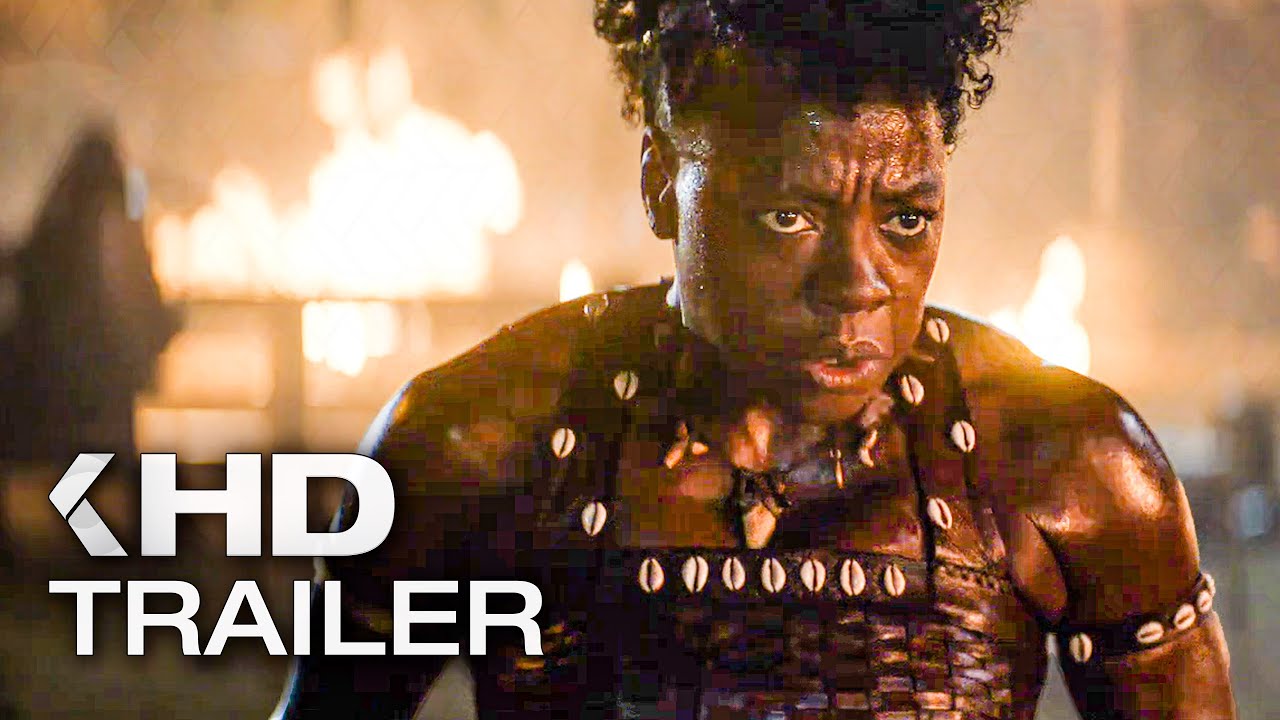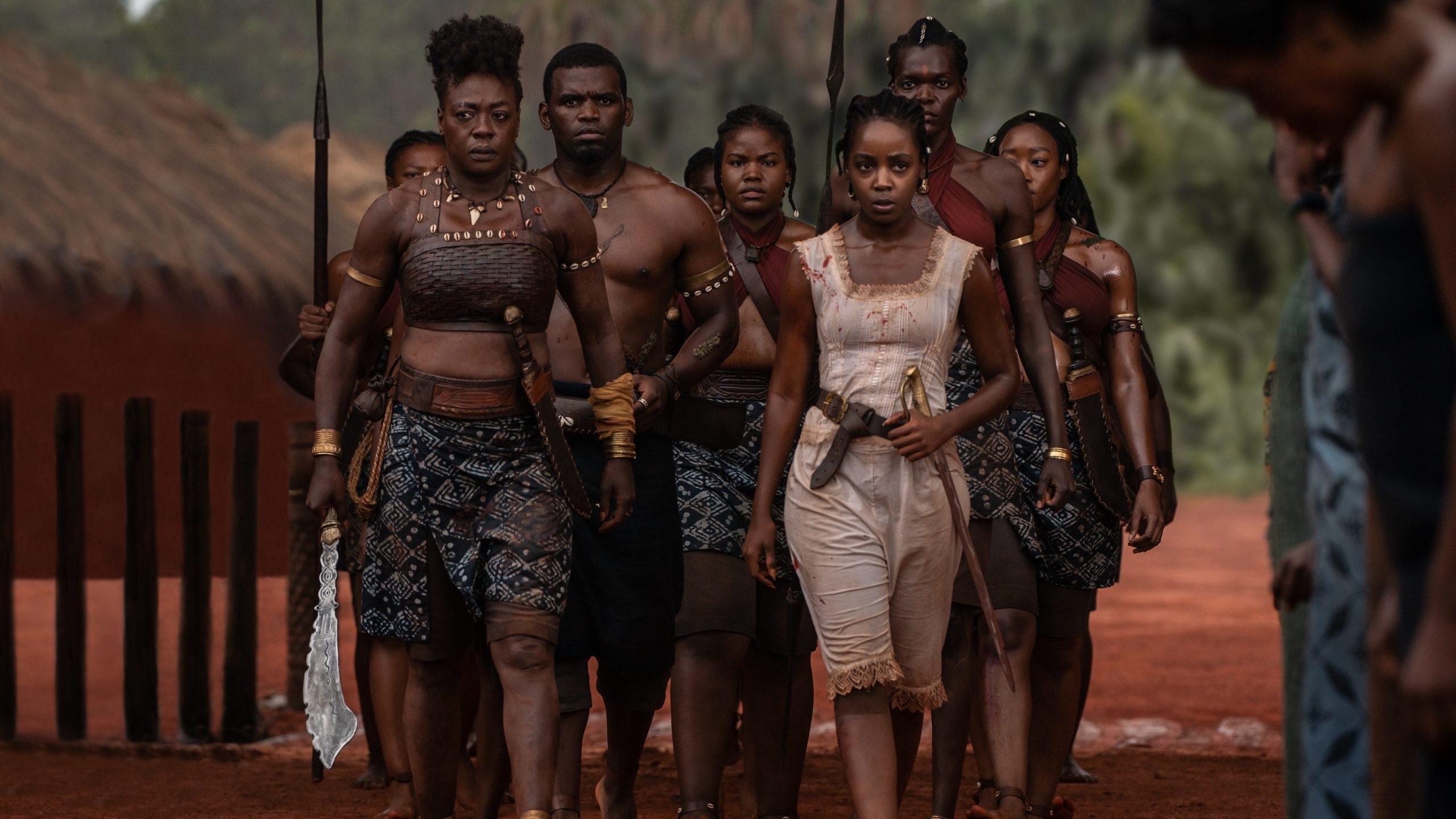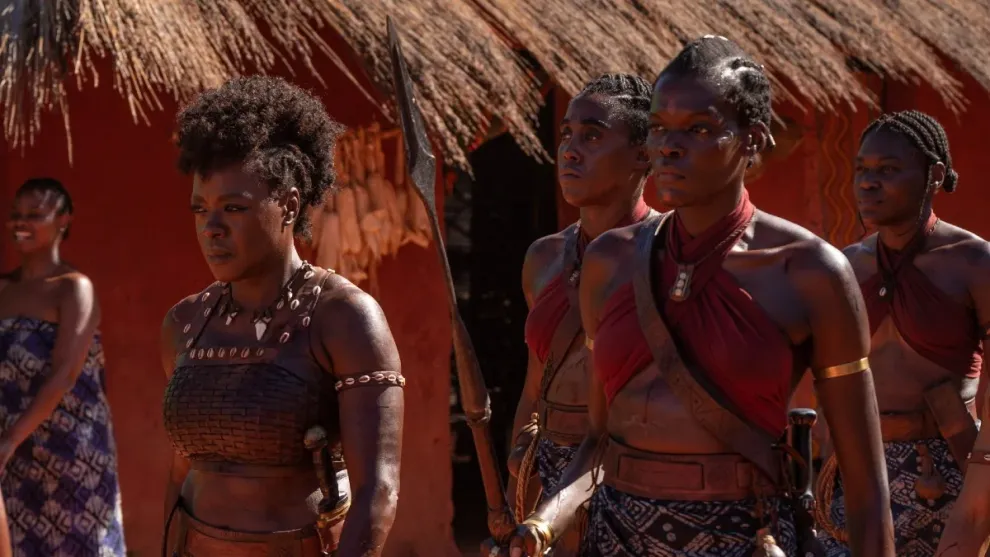The Woman King (2022) – Power, Pain, and Legacy

When The Woman King premiered in 2022, it did more than bring a forgotten chapter of history to the screen — it electrified audiences with a story that balanced spectacle with truth, action with heart, myth with memory. Directed by Gina Prince-Bythewood, the film tells the story of the Agojie, an all-female warrior unit sworn to protect the African kingdom of Dahomey in the 1820s. What results is a rare epic: both intimate and monumental, both deeply personal and universally stirring.
At the heart of the film is Viola Davis as General Nanisca, a role that cements her as one of the great screen icons of her generation. Davis embodies strength not as a mask but as a weight, carrying scars both physical and emotional. Her Nanisca is fierce in battle, but it’s her quiet moments — trembling after trauma, standing before her warriors as both protector and survivor — that carve her performance into legend.

The ensemble shines as brightly. Thuso Mbedu as Nawi, the rebellious recruit who grows into her own power, serves as both audience surrogate and emotional engine. Lashana Lynch delivers fire and humor in equal measure, grounding the sisterhood of the Agojie in laughter as much as blood. Sheila Atim radiates wisdom as Amenza, the steady voice beside Nanisca. Together, they create a tapestry of womanhood that feels whole — strong, vulnerable, flawed, and indomitable.
The action sequences are blistering. Prince-Bythewood directs combat with clarity and grit, avoiding the glossy unreality of many blockbusters. Spears clash, blades slash, and every fight feels personal. The choreography highlights both the ferocity of the Agojie and their unity as a force, turning battlefields into symphonies of movement and defiance.
Yet the film does not shy away from complexity. It acknowledges Dahomey’s entanglement in the slave trade, refusing to sanitize history for the sake of comfort. This moral tension deepens the narrative, forcing the characters — and the audience — to confront the contradictions of power, survival, and complicity. It’s a bold choice, one that elevates The Woman King from heroic myth to something sharper, more honest.
Visually, the film is stunning. Sweeping African landscapes glow with both beauty and menace, while production design immerses us in Dahomey’s palaces, rituals, and traditions. The color palette — vibrant reds, deep golds, earthy browns — reflects both vitality and violence, creating a world that feels alive and unflinching.
The score, by Terence Blanchard and Lebo M, pulses with African rhythms and orchestral grandeur. Percussion drives the battles, while soaring vocals elevate moments of triumph and sorrow. Music here is not background, but heartbeat.
Thematically, The Woman King is a story of resilience and reclamation. It asks what it means to lead, to protect, to mother, to fight for survival while dreaming of freedom. It is a story about women who refuse invisibility, who carve their names into history with steel and blood.

The climax delivers both catharsis and heartbreak, tying together personal arcs with the broader struggle of Dahomey’s survival. It is victory tempered by cost — a reminder that history offers no easy endings.
In the end, The Woman King stands as one of the most powerful historical epics of the 21st century. It thrills, it wounds, it uplifts, and it demands to be remembered. Viola Davis and the ensemble don’t just play warriors; they embody a lineage that cinema has too often ignored.
This is more than a film. It is a testament — to the Agojie, to women erased by history, and to the power of stories finally being told.
Related movies :
Related movies :
Related movies :
Related movies :
Related movies :
Related movies :
Related movies :











